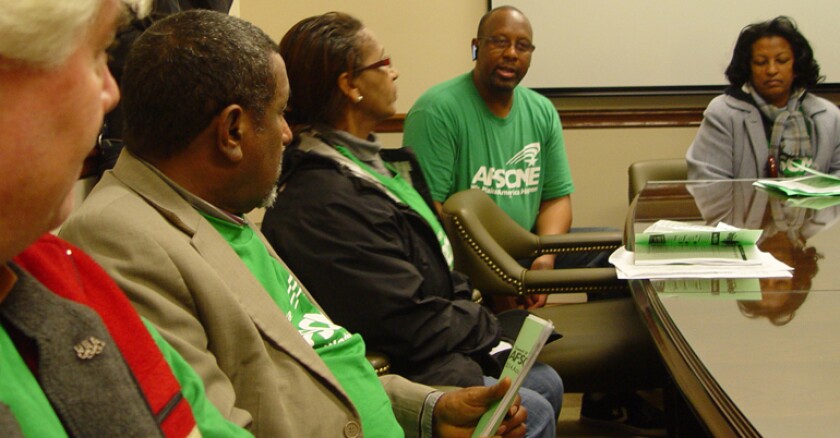Since Janus, some scholars have proposed a legislative workaround. They suggest that pro-labor state governments could reimburse unions directly for the collective-bargaining-related services unions provide to all bargaining-unit members. This could take the form of a straightforward reimbursement for bargaining-related costs. Alternatively, it could be funded by a reduction in employees' salaries, keyed to the union's cost of providing services to bargaining-unit employees, with union dues correspondingly reduced so that union members would pay dues for members-only benefits such as political advocacy.
While these proposals are intriguing, they also carry risks. Perhaps the biggest is that relying on employers to fund unions risks eroding their independence. And independent unions have a powerful democratizing effect. This is not just some hoary notion. Consider the role of independent unions in promoting democracies, like Solidarity in Poland during the 1980s or COSATU, the coalition of anti-apartheid unions, in South Africa.
Consider too the negative effects of government-dominated unions. In many countries, governments effectively control "protection unions." Our own history tells us what company unions look like. These "unions" do not express real employee voice; rather, they are a vehicle by which employers control workers.
Governments may also restrict freedom of association, as occurs in countries that prohibit organizing and bargaining in export-processing zones or that impose restrictions on union registration, mass gatherings and other self-help efforts. In the United States, five southern states ban collective bargaining for some or all public employees. And in recent years some midwestern states have severely curtailed public employees' ability to collectively bargain. In short, workers must retain a voice that is truly independent, relying on their own strength and resources.
We don't doubt the good faith and commitment of state governments that have long supported public-sector collective bargaining. But what if a union in one of those states, reflecting the voice and intensity of its members, insists on a substantial pay raise for teachers, social workers or firefighters? Or seeks to negotiate a revival of defined-benefit pensions? Or lobbies to create or expand a right to strike? One might expect some governments, however union-friendly, to decide that direct state funding for collective-bargaining-related services should be reduced or abandoned.
State governments that believe in the value of collective bargaining can surely be supportive in various ways without stepping on unions' independence. Several states, for example, have recently passed or are considering laws that will provide unions with regular access to meet and confer with interested employees they hope to recruit; will have union representatives participate at new-employee orientations; or will share addresses or email contacts for new employees at unionized workplaces. And states might consider engaging in broader forms of consultation and collaborative problem-solving with unions and their workers, provided such efforts comport with existing laws that respect exclusive representation for bargaining purposes.
Unions do recognize that Janus forces them to make a virtue of necessity and recommit to their own activism. They are already seeking to organize, mobilize and make clear to agency-fee payers as well as dues-paying members why joining together through a union is vital to securing better working conditions for tens of millions of employees and their families.
Given the current composition of the Supreme Court, unions and their supporters cannot hope to overturn Janus. But in moving forward, we should be wary of solutions that tie unions too closely to government funding.








